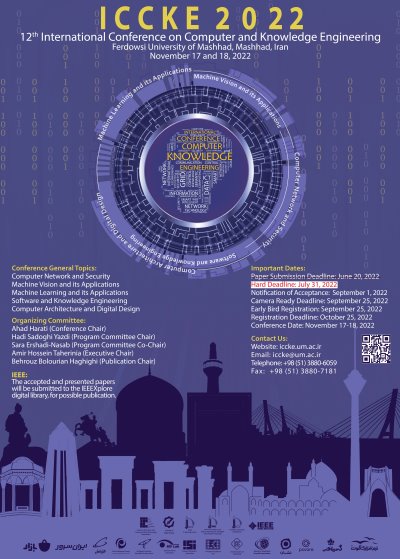0% Complete

Authors :
Keywords :
Abstract :
List of archived papers
Nastaran Hamedi - Ali Khadem - Sajjad Vardast - Mehdi Delrobaei - Abbas Babajani-Feremi
Elham Mahmoudabadi - Esmaeil Mollaahmadi
Aliyu Sabo - Theophilus Ebuka Odoh - Samuel Habu - Hossien Shahinzadeh - Farshad Ebrahimi
Faezeh Alizadeh - Mohammad Khansari
Elham Akbari - Azam Bastanfard
Omid Nejati manzari - Amin Boudesh - Shahriar B. Shokouhi
Maria Salehpanah - Jafar Tanha - Zahra Jafari - SeyedEhsan Roshan - Sajad Rezaei
Sajjad Rezaei - Mohsen Kahani - Behshid Behkamal
Shima Esfandiari - Ashkan Sami




